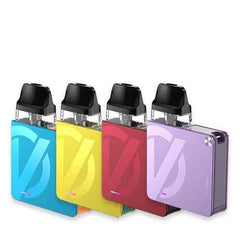
FTC Cracks Down on Deceptive "Made in the USA" Claims: A New Era of Compliance
Table of Contents
- Key Highlights:
- Introduction
- The FTC's "Made in the USA" Labeling Rule
- Rising Consumer Preference for American-Made Products
- The Impact of Warning Letters
- The Legal Landscape Surrounding MUSA Claims
- The Challenges of Compliance
- The Future of "Made in the USA" Marketing
- FAQ
Key Highlights:
- The FTC has designated July as “Made in the USA” Month, emphasizing the importance of accurate labeling for American-made products.
- Warning letters were sent to several companies, including Amazon and Walmart, for potentially misleading "Made in the USA" claims by third-party sellers.
- The FTC's stringent "Made in USA" Labeling Rule requires companies to meet specific criteria, with violations leading to hefty penalties and increased class action lawsuits.
Introduction
In a landscape increasingly defined by consumer preference for domestic products, the Federal Trade Commission (FTC) has taken significant steps to ensure that the “Made in the USA” label is not misused. With July officially designated as “Made in the USA” Month, the FTC is reinforcing its commitment to protecting consumers from deceptive advertising practices. This initiative comes at a time when a growing number of companies are coming under scrutiny for making unsubstantiated claims about the American origin of their products. The implications of this crackdown extend beyond just penalties; they signal a broader trend toward heightened accountability in advertising practices.
The FTC's "Made in the USA" Labeling Rule
The FTC’s regulation regarding "Made in the USA" claims, known as the Made in USA Labeling Rule (MUSA Labeling Rule), lays out clear standards that manufacturers must meet if they wish to label their products as American-made. Specifically, for a product to carry this label, three stringent criteria must be satisfied:
- Final Assembly or Processing: The final assembly or processing of the product must occur in the U.S.
- Significant Processing: All significant processing that goes into the product must take place domestically.
- Ingredients or Components: All or virtually all ingredients or components of the product must be made and sourced in the U.S.
Adhering to this rule is essential not just for compliance but also for building consumer trust. Inaccurate claims can lead to legal repercussions, including substantial civil penalties, as demonstrated by the FTC's historical enforcement actions.
Rising Consumer Preference for American-Made Products
Consumer surveys consistently indicate a strong preference for products made in the United States. According to a 2020 FTC report on “Made in the USA” claims, a significant majority of consumers express a willingness to pay a premium for American-made goods. This inclination is not merely a matter of national pride; many consumers associate local manufacturing with higher quality, better labor practices, and a reduced carbon footprint.
However, as demand for American-made products rises, so does the temptation for companies to exaggerate their domestic sourcing. The FTC's recent actions highlight the need for businesses to align their marketing strategies with actual production practices to avoid misleading consumers.
The Impact of Warning Letters
On July 8, 2025, following the designation of “Made in the USA” Month, the FTC issued warning letters to several companies, including retail giants Amazon and Walmart. These letters were not directed at the companies themselves but rather at third-party sellers on their platforms. The FTC's message was clear: online marketplaces must actively monitor their sellers to prevent the dissemination of misleading claims regarding the American origin of products.
This regulatory pressure highlights a crucial aspect of modern e-commerce: the responsibility of platforms like Amazon and Walmart to ensure the accuracy of product descriptions provided by third-party sellers. The FTC expects these companies to take corrective action against sellers who violate the MUSA Labeling Rule, which could have far-reaching consequences for how online retail operates.
The Legal Landscape Surrounding MUSA Claims
The FTC's enforcement actions are taking place against a backdrop of increasing class action litigation targeting "Made in the USA" claims. Recent reports indicate a surge in lawsuits, with thirteen class action suits filed in just the first half of 2025, compared to only seven in all of 2024. This trend underscores the heightened scrutiny of such claims and the legal ramifications for companies that misrepresent their products.
The National Advertising Division (NAD) of the Better Business Bureau (BBB) is also playing a critical role in this landscape by facilitating disputes over advertising claims, including MUSA challenges. As companies become more vigilant about competitors' advertising practices, the potential for further legal challenges increases.
The Challenges of Compliance
As manufacturers navigate the complexities of compliance with the MUSA Labeling Rule, they must also consider the impact of changing supply chains and production practices. With rising tariffs and increased production costs, many companies are reassessing their sourcing strategies. This reevaluation can lead to modifications in labeling and marketing claims, highlighting the importance of ongoing compliance checks.
It is essential for businesses to not only ensure that they meet the FTC's requirements but also to communicate their sourcing practices transparently to consumers. Misleading claims can lead to a loss of consumer trust and significant legal consequences.
The Future of "Made in the USA" Marketing
The designation of July as “Made in the USA” Month is not only a call to action for manufacturers but also an opportunity for consumers to support domestic products confidently. As the FTC ramps up enforcement of the MUSA Labeling Rule, companies must prioritize truthful marketing practices to maintain their reputation and consumer trust.
In this evolving landscape, companies that embrace transparency and authenticity in their marketing strategies are likely to thrive. As consumers become more discerning, businesses must align their claims with actual production practices to avoid the pitfalls of deception.
FAQ
What does the FTC mean by "Made in the USA"? The FTC defines "Made in the USA" as a label that can only be used if the final assembly or processing, significant processing, and the sourcing of all or virtually all components occur in the United States.
What are the penalties for violating the MUSA Labeling Rule? Violations of the MUSA Labeling Rule are treated as unfair or deceptive acts under the FTC Act and can result in civil penalties, which may be substantial.
How does the FTC monitor compliance with the MUSA Labeling Rule? The FTC actively reviews advertising claims and may issue warning letters to companies that appear to be in violation. They expect both manufacturers and online platforms to take corrective action against misleading claims.
What should companies do to ensure compliance with the MUSA Labeling Rule? Companies should regularly review their sourcing and manufacturing practices, ensure accurate labeling in marketing materials, and modify claims as necessary to reflect changes in their production processes.
What is the role of the National Advertising Division (NAD) in this context? The NAD investigates advertising disputes, including those related to "Made in the USA" claims, and can facilitate challenges brought by competitors or, in rare cases, consumers.
通过我们的每周洞察和更新,增强您的电子商务!
在商业世界保持同步
电子邮件地址




